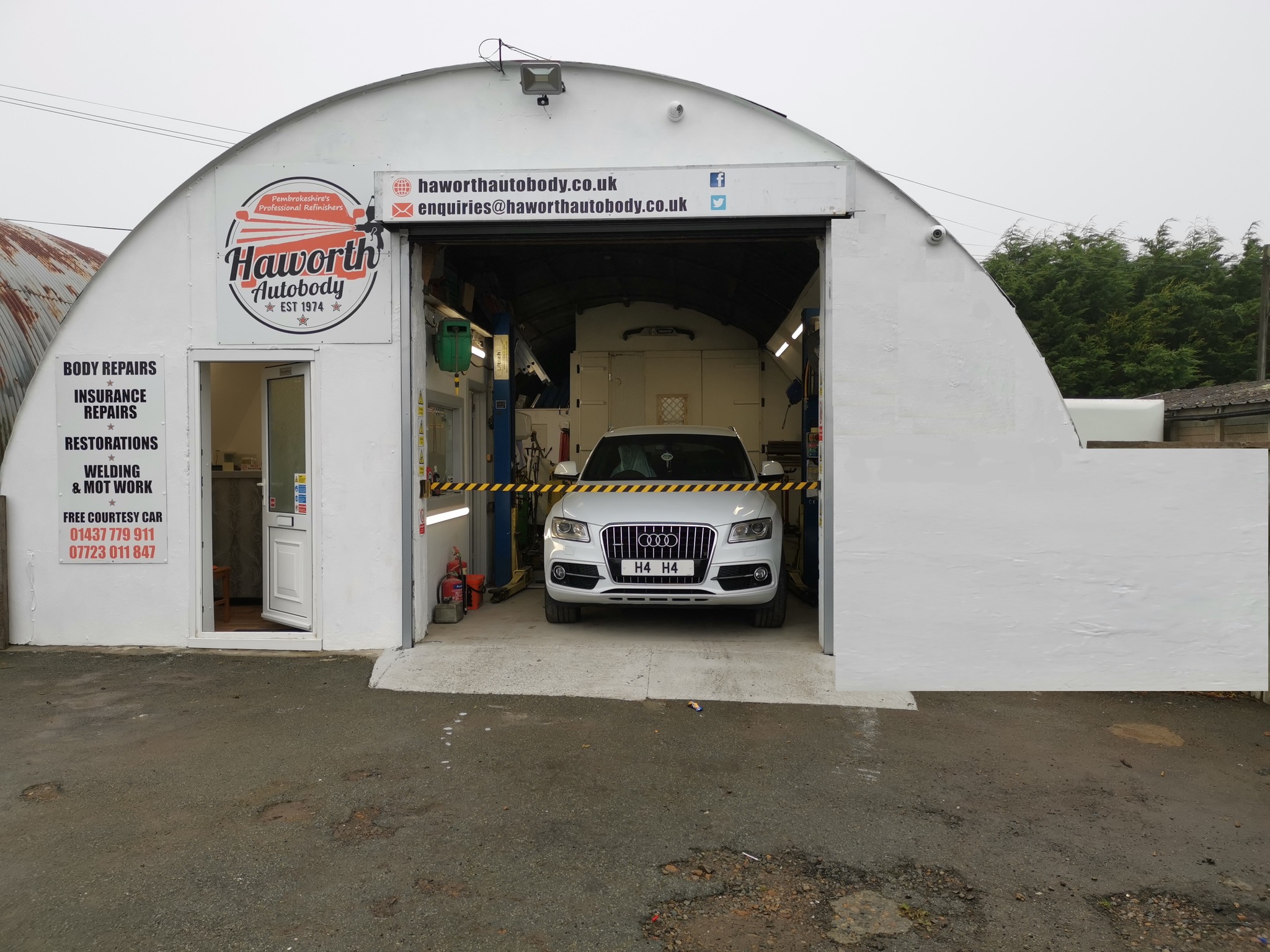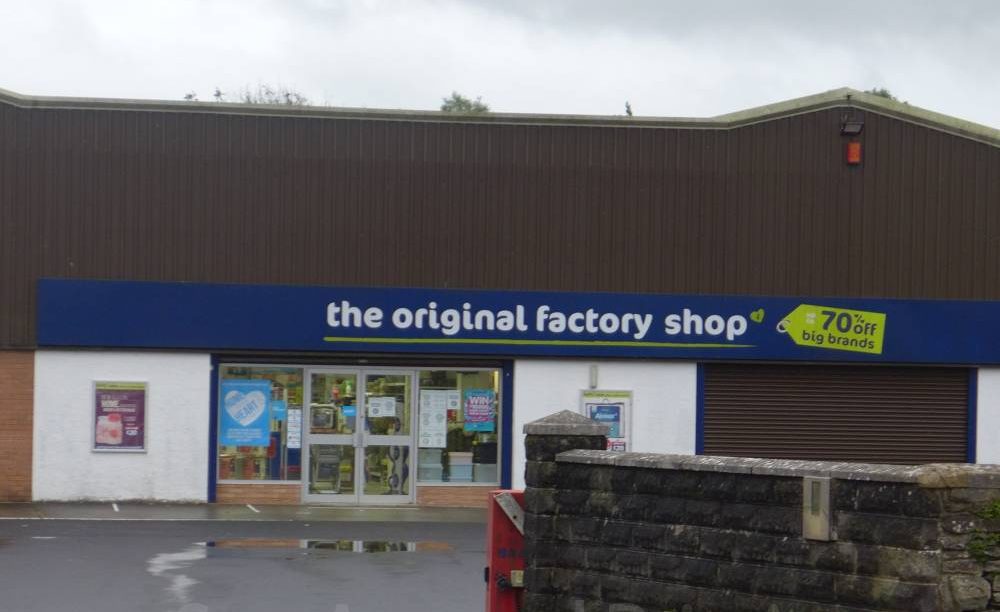Business
Support local shops This Small Business Saturday, urges Kurtz

SAMUEL KURTZ, Member of the Senedd for Carmarthen West and South Pembrokeshire, is calling on residents to champion local businesses as Small Business Saturday approaches on 7 December.
The annual event, now in its twelfth year, celebrates the vital role of small and independent businesses in communities. Since its UK launch in 2012, Small Business Saturday has become a highlight of the retail calendar, encouraging shoppers to explore and support their local high streets, particularly during the festive season.
Speaking ahead of the event, Mr. Kurtz emphasized the importance of shopping locally, not just at Christmas but year-round.
A call to shop local
“Small Business Saturday is a fantastic opportunity to showcase the incredible independent shops and businesses that make our towns and villages so special,” he said. “In West Wales, we’re fortunate to have an abundance of unique, high-quality local businesses that deserve our support, especially as they face challenges such as Labour’s budget pressures and rising National Insurance.
“Shopping locally keeps money within our communities, helping small businesses survive and thrive. This benefits us all and ensures that our hard-earned money supports local livelihoods instead of enriching distant shareholders.”
The backbone of the local economy
Mr. Kurtz also highlighted the wider benefits of backing small businesses.
“Small businesses are the backbone of our local economy. They create jobs, foster entrepreneurship, and bring character to our high streets. By supporting them, we’re investing in the future of our communities. Let’s ensure their success not just for a day, but all year round.”
The Carmarthen West and South Pembrokeshire MS is encouraging everyone to take part in Small Business Saturday by visiting local shops, cafes, and service providers. He stressed that collective support can help sustain the vibrant and diverse economy that defines the region.
Business
Pub rate relief welcomed but closures still feared

CAMRA warns one-year discount is only a sticking plaster as many Welsh locals face rising bills
A BUSINESS rates discount for Welsh pubs has been welcomed as a step in the right direction — but campaigners warn it will not be enough to stop more locals from shutting their doors.
The Campaign for Real Ale (CAMRA) says the Welsh Government’s decision to offer a 15 per cent reduction on business rates bills for the coming year will provide short-term breathing space for struggling publicans.
However, it believes the move fails to tackle deeper problems in the rating system that continue to pile pressure on community pubs across Wales, including in Pembrokeshire and Carmarthenshire.
Chris Charters, Director of CAMRA Wales, said: “Today’s announcement from the Finance Secretary that pubs will get 15% discount on their business rates bills is a welcome step.
“However, many pubs still face big hikes in their bills due to the rates revaluation which could still lead to more of our locals in Wales being forced to close for good.
“15% off for a year is only the start of supporting pubs with business rates. It won’t fix the unfair business rates system our pubs are being crushed by.”
He added: “Welsh publicans need a permanent solution, or doors will continue to close and communities will be shut away from these essential social hubs that help tackle loneliness and isolation.”
Mounting pressure on locals
Under plans announced by the Welsh Government, pubs will receive a temporary discount on their rates bills for the next financial year.
But CAMRA argues that many premises are simultaneously facing sharp increases following the latest revaluation, which recalculates rateable values based on property size and trading potential.
For some smaller, rural venues, especially those already operating on tight margins, the increases could wipe out the benefit of the relief entirely.
Publicans say they are also contending with rising energy costs, higher wages, supplier price hikes and changing customer habits since the pandemic.
In west Wales, several long-standing village pubs have either reduced their opening hours or put their businesses on the market in the past year, with landlords warning that overheads are becoming unsustainable.
Community role
Campaigners stress that the issue goes beyond beer sales.
Pubs are often described as the last remaining social spaces in small communities — hosting charity events, sports teams, live music and local groups.
In parts of rural Pembrokeshire, a pub can be the only public meeting place left after the loss of shops, banks and post offices.
CAMRA says supermarkets and online retailers enjoy structural advantages that traditional pubs cannot match, making it harder for locals to compete on price.
The organisation is now calling on ministers to introduce a permanently lower business rates multiplier for pubs, rather than relying on short-term discounts.
Long-term reform call
CAMRA wants whoever forms the next Welsh administration to commit to fundamental reform of the rating system, arguing that pubs should be recognised as community assets rather than treated like large commercial premises.
Without change, it warns, the number of closures is likely to accelerate.
Charters said: “This is about protecting the future of our locals. Once a pub shuts, it rarely reopens. We can’t afford to lose any more.”
For many communities across west Wales, the fear is simple: temporary relief may buy time — but it may not be enough to save the local.
Business
Haworth Autobody earns Which? Trusted Trader status

Family-run repair centre praised for workmanship, transparency and customer care
A FAMILY-RUN vehicle repair business has been recognised for its high standards of workmanship and customer service after securing national accreditation from Which? as a Trusted Trader.
Haworth Autobody Ltd, based in Haverfordwest, has built a loyal customer base through years of careful, precision repairs and a straightforward, customer-first approach. To earn the endorsement, the company underwent a detailed independent assessment examining not only technical skill and repair standards, but also business procedures, complaint handling systems and verified customer feedback.
The Which? Trusted Trader scheme is widely regarded as one of the most robust consumer approval programmes in the UK. Successful applicants must follow a strict code of conduct and agree to ongoing monitoring, with only a small proportion of businesses achieving the status.
Owner Bobby Haworth said the accreditation reflects values the company has always tried to uphold.
“We’ve always believed that doing the job properly, being upfront with customers and standing by our work is the only way to operate,” he said. “To have that approach independently recognised by Which? means a great deal to us and gives customers extra confidence when they choose us.”
For motorists, the recognition offers added peace of mind at a time when trust and transparency in vehicle repairs are more important than ever. Customers can expect clear communication throughout the process, honest and detailed estimates, and repairs carried out to a consistently high standard.
The workshop handles a wide range of services, including accident damage repairs, paintwork restoration and cosmetic bodywork, with an emphasis on quality workmanship and attention to detail.
Mr Haworth said the endorsement was not a finishing line but a foundation for continued improvement.
“We’re continuing to invest in staff training, modern equipment and new techniques to make sure standards stay high as we grow,” he added.
With consumer confidence increasingly tied to independent verification and proven reliability, the latest recognition reinforces Haworth Autobody’s standing as a trusted name in local vehicle repair.
Haworth Autobody Ltd
Unit 7, Snowdrop Lane, Haverfordwest, Pembrokeshire SA61 1ET
Tel: 01437 779911
Mobile: 07723 011847
Web: www.habody.com
Business
St Clears discount store in closing down sale after chain enters administration

A WELL-KNOWN discount retailer in St Clears is advertising a closing down sale after its parent company fell into administration, raising fresh concerns about the future of another high street store in west Wales.
The Original Factory Shop, which trades from Pentre Road in St Clears, has launched an “up to 30% off” sale as administrators attempt to secure the future of the business.
The chain, which sells clothing, homeware, garden products, toys and everyday essentials, appointed joint administrators Rick Harrison and James Clark of Interpath Advisory last week.
Founded in 1969, the retailer operates 137 stores across the UK and employs around 1,180 staff.
In a statement, Interpath said the company had faced difficult trading conditions common across the high street, including rising costs, weaker consumer spending and increased employment expenses. It added that problems with a third-party warehouse and logistics provider had also disrupted sales.
Despite the administration, the joint administrators say all stores will continue trading for now while options for the business are explored. The company’s online store is set to close.
Rick Harrison, managing director at Interpath and joint administrator, said the retailer had long been a fixture in town centres across the country but had struggled in the current climate.
Over the coming weeks, administrators will review whether parts of the business can be sold or restructured.
However, signage and social media posts from the St Clears branch suggest uncertainty locally, with the store promoting a closing down sale and urging shoppers to “grab a bargain while stocks last”.
The St Clears outlet is one of the last remaining branches in west Wales. Stores in Fishguard, Haverfordwest and Milford Haven closed last year. The Cardigan branch is also understood to be running a similar clearance sale.
The loss of another discount retailer would mark a further blow for smaller town centres already facing reduced footfall and rising costs.
-

 Health6 days ago
Health6 days agoConsultation reveals lack of public trust in health board
-

 News7 days ago
News7 days agoCaldey still unsafe, survivors warn — despite Abbey’s reform claims
-

 Community6 days ago
Community6 days agoPembrokeshire students speak at national Holocaust Memorial Day event
-

 News15 hours ago
News15 hours agoPrincess of Wales visits historic Pembrokeshire woollen mill
-

 News7 days ago
News7 days agoKurtz raises Gumfreston flooding in the Senedd as petition deadline nears
-

 Crime4 days ago
Crime4 days agoPembroke man accused of child sex offences sent to Swansea Crown Court
-

 Education6 days ago
Education6 days ago‘Vulnerable teen’ questioned by police at Milford Haven School
-

 Education6 days ago
Education6 days agoAttendance concerns at Milford School reflect wider issue raised at the Senedd




























